
Introduction
april 2026 calendar holy week represents a significant subject within its field, encompassing a range of practices, traditions, or applications that shape daily life and broader cultural or professional landscapes. Understanding april 2026 calendar holy week provides clarity about its background, its present relevance, and the way it continues to influence various aspects of society. For millions worldwide, this period is not merely a sequence of dates but a profound spiritual journey, marking the culmination of Lent and leading to the celebration of Easter. Its impact extends beyond religious congregations, touching upon cultural identity, community gatherings, and even national economies through tourism and public holidays. The precise timing of this observance, determined by ancient ecclesiastical calculations, ensures its consistent placement within the annual cycle, making the 2026 iteration a focal point for planning and reflection.
Definition and Origin of april 2026 calendar holy week
Holy Week, often referred to as the Great Week, is the most sacred period in the Christian liturgical calendar, commemorating the final days of Jesus Christ’s life on Earth, his crucifixion, and his resurrection. Its origins are deeply rooted in early Christian tradition, tracing back to the first centuries after Christ, as communities began to formalize the remembrance of these pivotal events. The timing of Holy Week is intrinsically linked to Easter, which falls on the first Sunday after the first full moon following the vernal equinox. For the year 2026, Easter Sunday is observed on April 12th. Consequently, the sacred period preceding it, known as Holy Week, commences on Palm Sunday, April 5th, 2026.
The week unfolds with a series of distinct observances:
- Palm Sunday (April 5, 2026): Commemorates Jesus’ triumphant entry into Jerusalem, where crowds greeted him with palm branches.
- Maundy Thursday (April 9, 2026): Remembers the Last Supper, the institution of the Eucharist, and the washing of the disciples’ feet.
- Good Friday (April 10, 2026): A solemn day marking the crucifixion and death of Jesus Christ.
- Holy Saturday (April 11, 2026): A day of quiet reflection and anticipation, preceding the Easter Vigil.
- Easter Sunday (April 12, 2026): The joyous celebration of Jesus’ resurrection from the dead.
Historically, the practices associated with this week evolved from simple vigils and communal meals to elaborate liturgical rites and public processions. The Council of Nicaea in 325 AD played a significant role in standardizing the calculation of Easter, thereby establishing a consistent framework for the annual observance of Holy Week across diverse Christian communities. This historical continuity underscores the enduring significance of these dates for adherents worldwide.
Importance of april 2026 calendar holy week Today
The importance of Holy Week in the modern era remains profound, extending its influence across religious, cultural, and social spheres. For Christians, it represents the spiritual pinnacle of the year, a time for deep introspection, repentance, and renewal of faith. The narrative of Christ’s passion, death, and resurrection serves as the foundational story of Christianity, and its annual re-enactment through liturgy and personal devotion reinforces core theological tenets. This period encourages believers to reflect on sacrifice, redemption, and hope, fostering a closer relationship with their faith.
Beyond individual spiritual journeys, Holy Week holds immense cultural significance. In many countries with strong Christian traditions, particularly in Southern Europe, Latin America, and the Philippines, the observances are deeply interwoven with national identity and local customs. Grand processions featuring elaborate floats, religious statues, and penitents become public spectacles, drawing large crowds of both believers and tourists. These events are not merely religious ceremonies but also significant cultural expressions, preserving centuries-old traditions, music, art, and community bonds. Public holidays are often declared, allowing families to gather, travel, and participate in these collective rituals. The economic impact is also noteworthy, as tourism related to Holy Week observances contributes significantly to local economies in many regions. Thus, the calendar for April 2026, specifically for Holy Week, is a date of considerable anticipation and planning for a vast global population.
Benefits of april 2026 calendar holy week
The observance of Holy Week offers a multitude of benefits, encompassing spiritual, communal, and personal dimensions. Spiritually, it provides an unparalleled opportunity for profound reflection on the central mysteries of the Christian faith. The journey from Palm Sunday’s triumph to Good Friday’s sorrow and Holy Saturday’s silence, culminating in Easter’s joy, guides individuals through a comprehensive narrative of redemption. This process can lead to spiritual growth, a deeper understanding of one’s beliefs, and a renewed commitment to ethical living. Many find solace, forgiveness, and inspiration during this sacred time, experiencing a sense of purification and spiritual rejuvenation.
On a communal level, Holy Week fosters a strong sense of solidarity and shared purpose among believers. Participating in collective liturgies, processions, and charitable acts strengthens community bonds and reinforces a collective identity. Families often come together for meals, prayer, and participation in local events, reinforcing intergenerational connections and passing down traditions. The shared experience of mourning and celebration can be a powerful force for unity and mutual support. Culturally, the benefits include the preservation of historical practices, artistic expressions, and musical traditions that might otherwise fade. The intricate rituals, the solemn music, and the visual artistry of Holy Week observances contribute to a rich cultural heritage that enriches society as a whole, offering educational and aesthetic value to all who witness them.
Applications of april 2026 calendar holy week
The applications of Holy Week observances manifest in various forms, ranging from structured liturgical practices to personal devotional acts and community-wide traditions. Liturgically, churches worldwide follow specific rites and services for each day of the week. Palm Sunday features the blessing and distribution of palms, often followed by a procession. Maundy Thursday includes the Mass of the Lord’s Supper, which commemorates the institution of the Eucharist and often features a ritual washing of feet. Good Friday is marked by solemn services, veneration of the cross, and often a re-enactment of the Stations of the Cross. Holy Saturday is a day of quiet prayer, culminating in the Easter Vigil, a service of light, scripture readings, baptisms, and the first celebration of Easter.
Beyond formal church services, personal applications include increased prayer, fasting, and almsgiving, which are traditional Lenten practices that intensify during Holy Week. Many individuals engage in spiritual reading, meditation, and quiet contemplation, seeking to deepen their understanding of the events commemorated. Pilgrimages to holy sites or participation in local processions are also common applications, offering a tangible way to connect with the historical and spiritual dimensions of the week. In some cultures, specific culinary traditions are observed, such as abstaining from meat on Good Friday or preparing special dishes for Easter Sunday. Charitable acts, such as volunteering or donating to those in need, are also encouraged as a practical expression of faith and compassion during this period. The calendar for April 2026 thus guides a myriad of spiritual and cultural activities globally.
Challenges and Future of april 2026 calendar holy week
Despite its enduring significance, Holy Week faces several challenges in the contemporary world, while also presenting opportunities for adaptation and continued relevance. One significant challenge is the increasing secularization in many societies, which can lead to a diminished understanding or appreciation of the religious meaning behind the observances. For some, Holy Week may be perceived primarily as a public holiday or a time for leisure, rather than a sacred period for spiritual reflection. Declining church attendance in certain regions also impacts the vibrancy and participation in traditional rites. Balancing the preservation of ancient traditions with the need to engage modern audiences, particularly younger generations, poses another challenge. The logistical complexities of organizing large-scale public events, including security concerns and managing crowds, also require careful planning.
Looking to the future, the observance of Holy Week is likely to continue evolving. Digital platforms have already played a role in expanding access to services and reflections, particularly during times when physical gatherings are restricted. This trend may continue, allowing for broader participation and engagement from individuals who cannot attend in person. There is also a growing emphasis on interfaith dialogue and understanding, which could lead to greater appreciation of Holy Week’s cultural significance even among non-Christians. Efforts to make the theological messages more accessible and relevant to contemporary social issues, such as justice, peace, and environmental stewardship, could also ensure its continued resonance. The future of Holy Week hinges on its ability to maintain its spiritual core while adapting to the changing social and technological landscapes, ensuring its profound impact persists for generations to come.
FAQs about april 2026 calendar holy week
Q1: What is april 2026 calendar holy week?
A1: Holy Week in the April 2026 calendar is the most sacred week in the Christian liturgical year, commencing on Palm Sunday (April 5, 2026) and concluding on Holy Saturday (April 11, 2026), immediately preceding Easter Sunday (April 12, 2026). It commemorates the final week of Jesus Christ’s life, his crucifixion, and his burial.
Q2: Why is april 2026 calendar holy week important?
A2: Holy Week is important because it commemorates the central events of Christian faith: Jesus’s passion, death, and resurrection. It is a time for profound spiritual reflection, repentance, and renewal for Christians, and it also holds significant cultural and traditional importance in many societies worldwide, fostering community and preserving heritage.
Q3: What are the main benefits of april 2026 calendar holy week?
A3: The main benefits include spiritual growth and renewal, a deeper understanding of faith, strengthened community bonds through shared rituals, the preservation of rich cultural and artistic traditions, and opportunities for personal reflection and acts of charity.
Q4: How can april 2026 calendar holy week be applied in daily life?
A4: Holy Week can be applied in daily life through participation in church services, engaging in personal prayer and meditation, practicing fasting and almsgiving, reflecting on the themes of sacrifice and redemption, and spending time with family in contemplation or shared traditions.
Q5: What challenges are associated with april 2026 calendar holy week?
A5: Challenges include increasing secularization, which can diminish the religious understanding of the week, declining church attendance in some areas, the need to balance traditional observances with modern life, and the logistical complexities of organizing large public events.
Tips for april 2026 calendar holy week
Understanding and engaging with Holy Week can be a deeply enriching experience. Adopting a thoughtful approach can maximize its spiritual and cultural benefits.
- Understand the fundamentals. Familiarity with the theological significance of each day—from Palm Sunday’s procession to Good Friday’s solemnity and Holy Saturday’s quiet anticipation—provides a richer context for participation. Researching the historical and scriptural basis for the observances can deepen one’s appreciation.
- Focus on practical use. Beyond mere attendance, actively participate in the rituals and reflections. This might involve setting aside specific times for prayer, engaging in acts of charity, or observing traditional Lenten practices like fasting. Consider how the themes of sacrifice, redemption, and hope can be integrated into daily conduct.
- Stay updated on new trends or research. While Holy Week is rooted in ancient traditions, local churches and communities may offer contemporary interpretations, digital resources, or adapted services. Checking local church schedules, community announcements, and online spiritual guides can help individuals engage meaningfully.
- Avoid common mistakes. One common oversight is treating Holy Week solely as a public holiday without acknowledging its profound spiritual dimension. Another is neglecting personal reflection amidst social gatherings. A balanced approach that respects both the sacred and communal aspects is beneficial.
- Adopt a long-term approach. The lessons and spiritual insights gained during Holy Week are not meant to be confined to that single week. Endeavor to integrate themes of compassion, forgiveness, and renewal into daily life throughout the year, allowing the impact of this sacred period to foster ongoing personal and spiritual growth.
Conclusion about april 2026 calendar holy week
The april 2026 calendar holy week signifies a period of immense spiritual and cultural importance, representing a cornerstone of Christian faith and a vibrant element of global heritage. Its intricate traditions, historical depth, and profound theological narratives continue to shape individual lives and collective identities across continents. The observance of this sacred week offers unparalleled opportunities for spiritual renewal, community building, and the preservation of rich cultural expressions. While contemporary challenges such as secularization and the need for adaptation exist, the inherent benefits—including personal introspection, communal solidarity, and the perpetuation of timeless values—far outweigh these hurdles. As the world approaches April 2026, the anticipation for Holy Week underscores its enduring relevance, ensuring that this pivotal period remains a central element of progress and meaning into the future, continuing to influence countless aspects of society and personal faith.
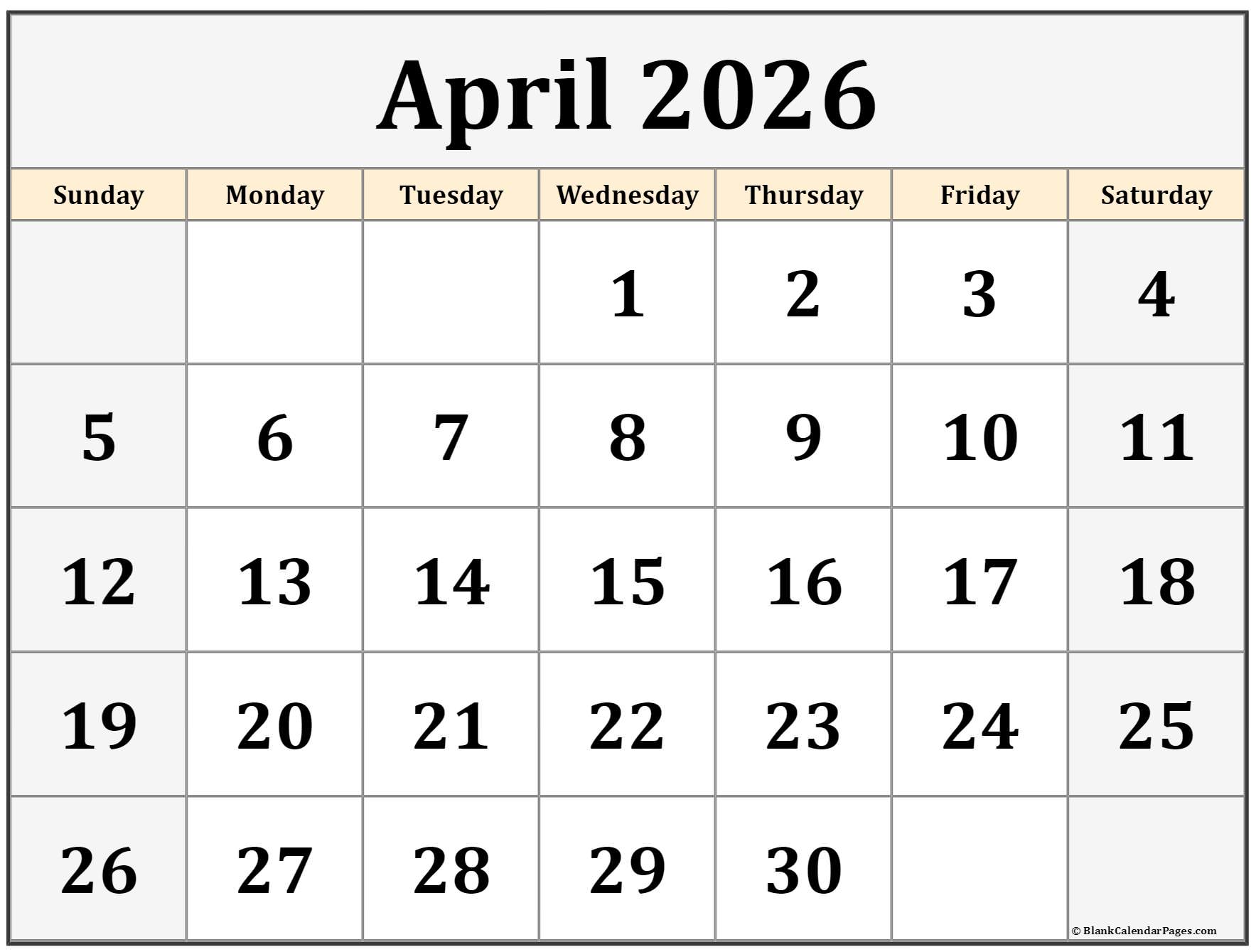
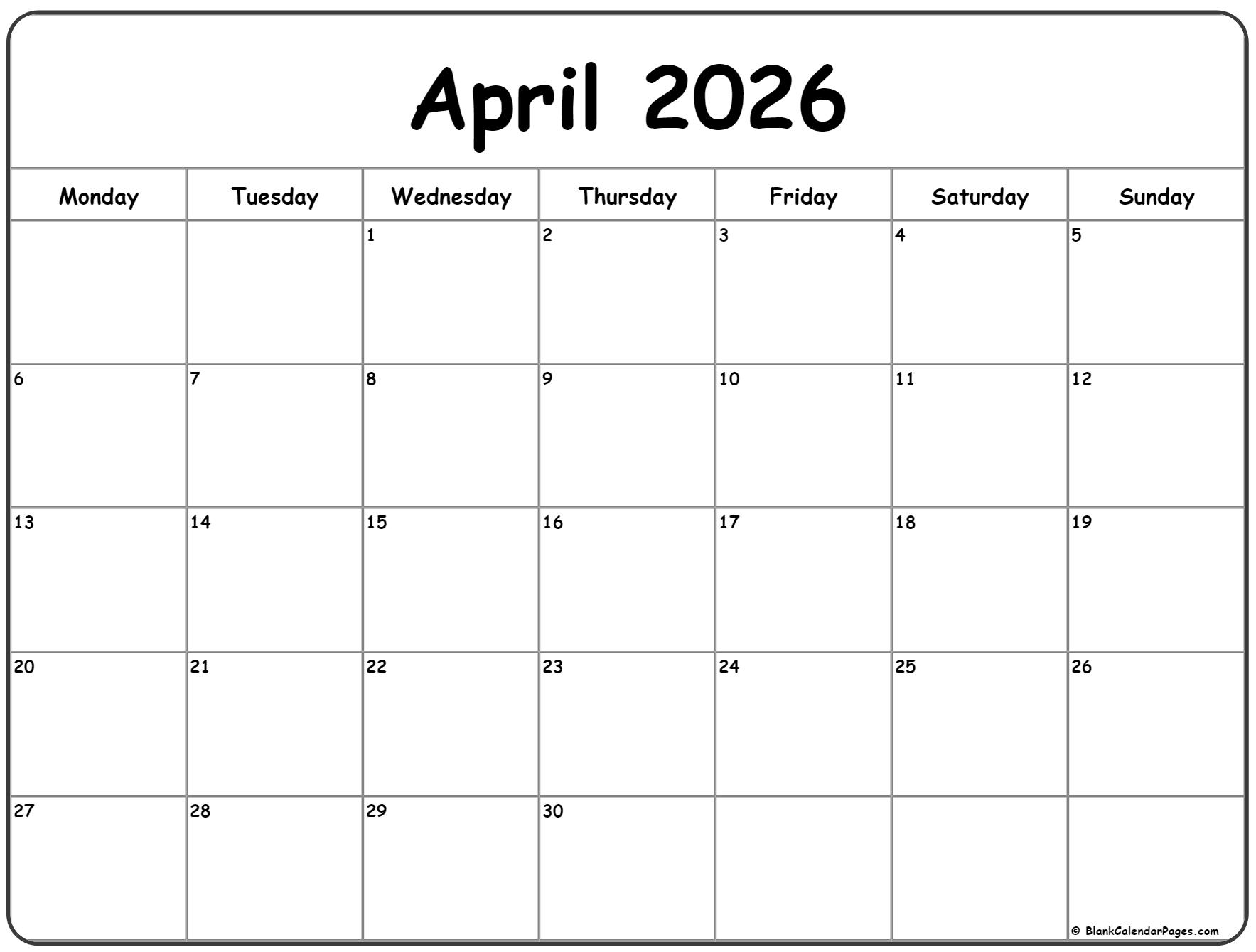
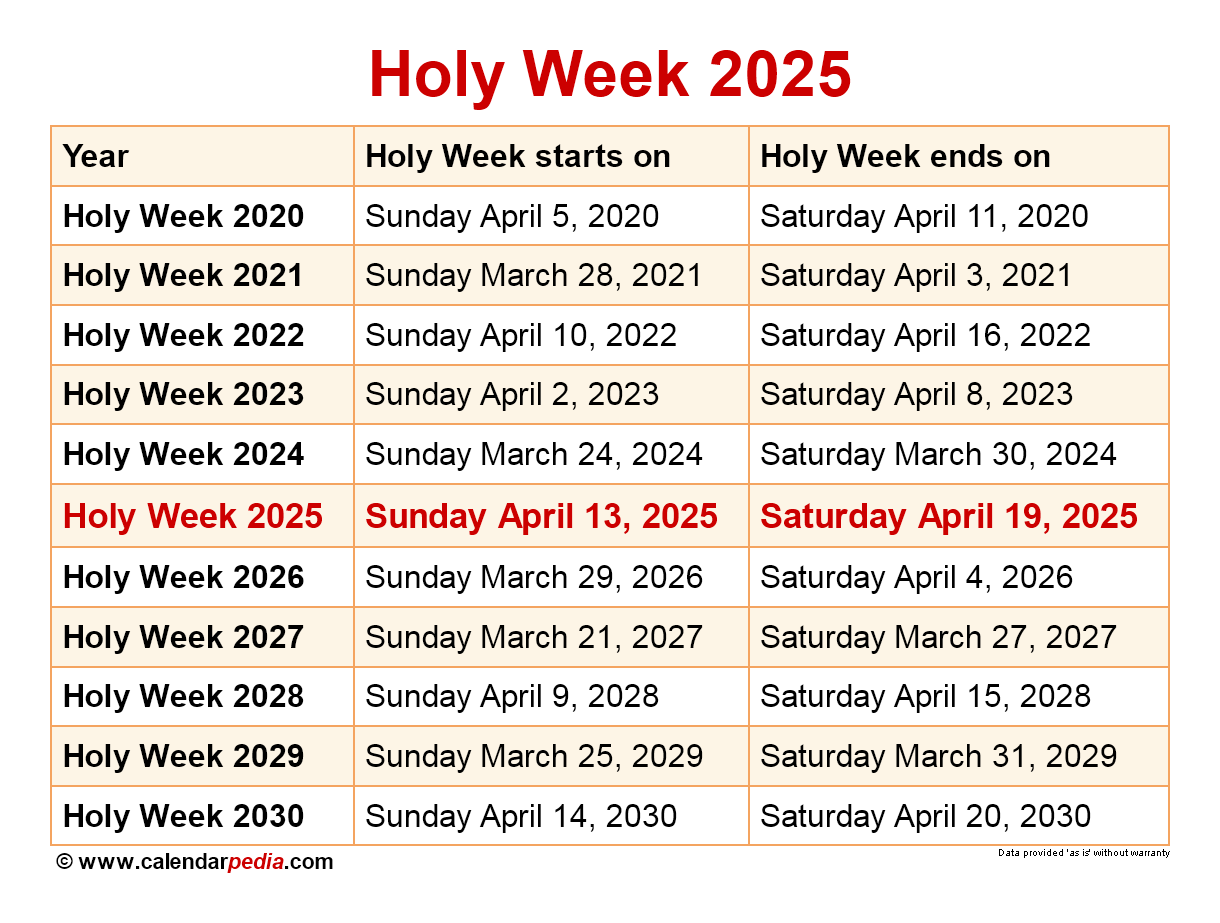
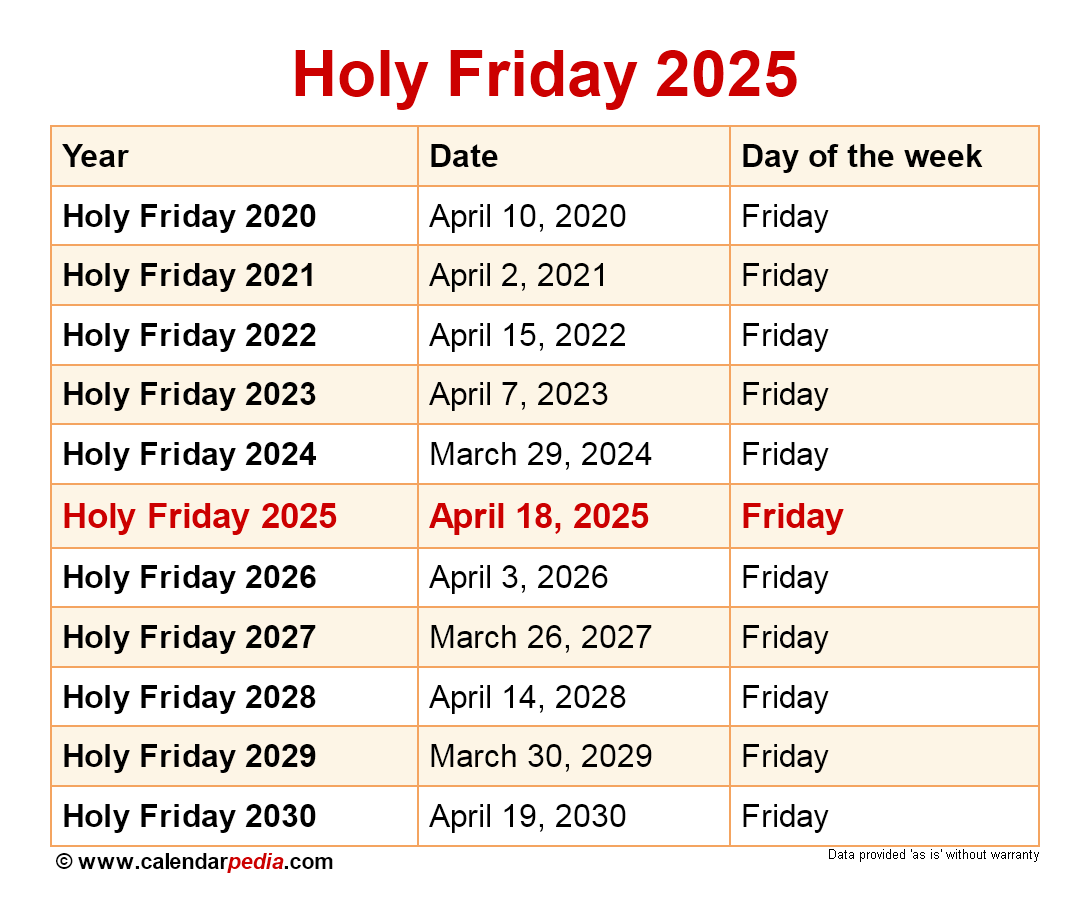
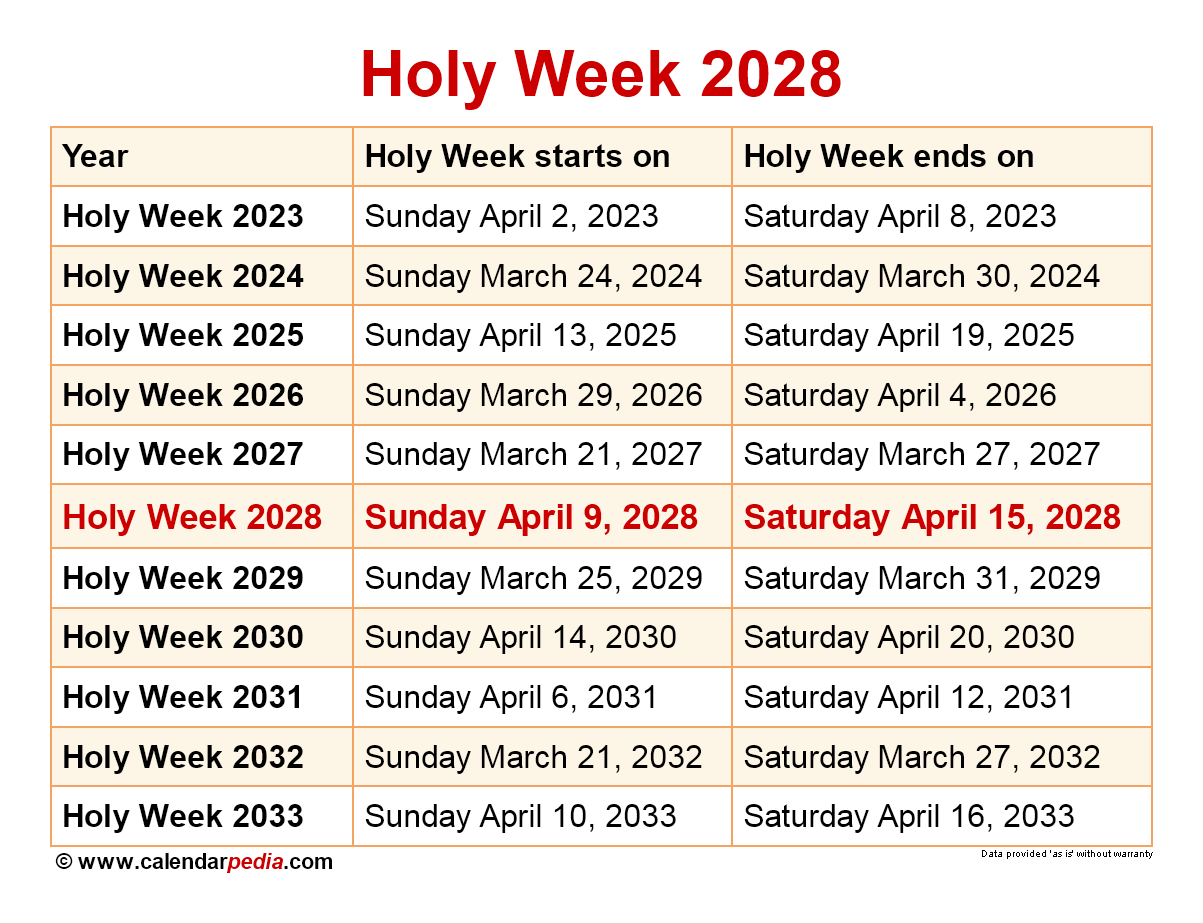
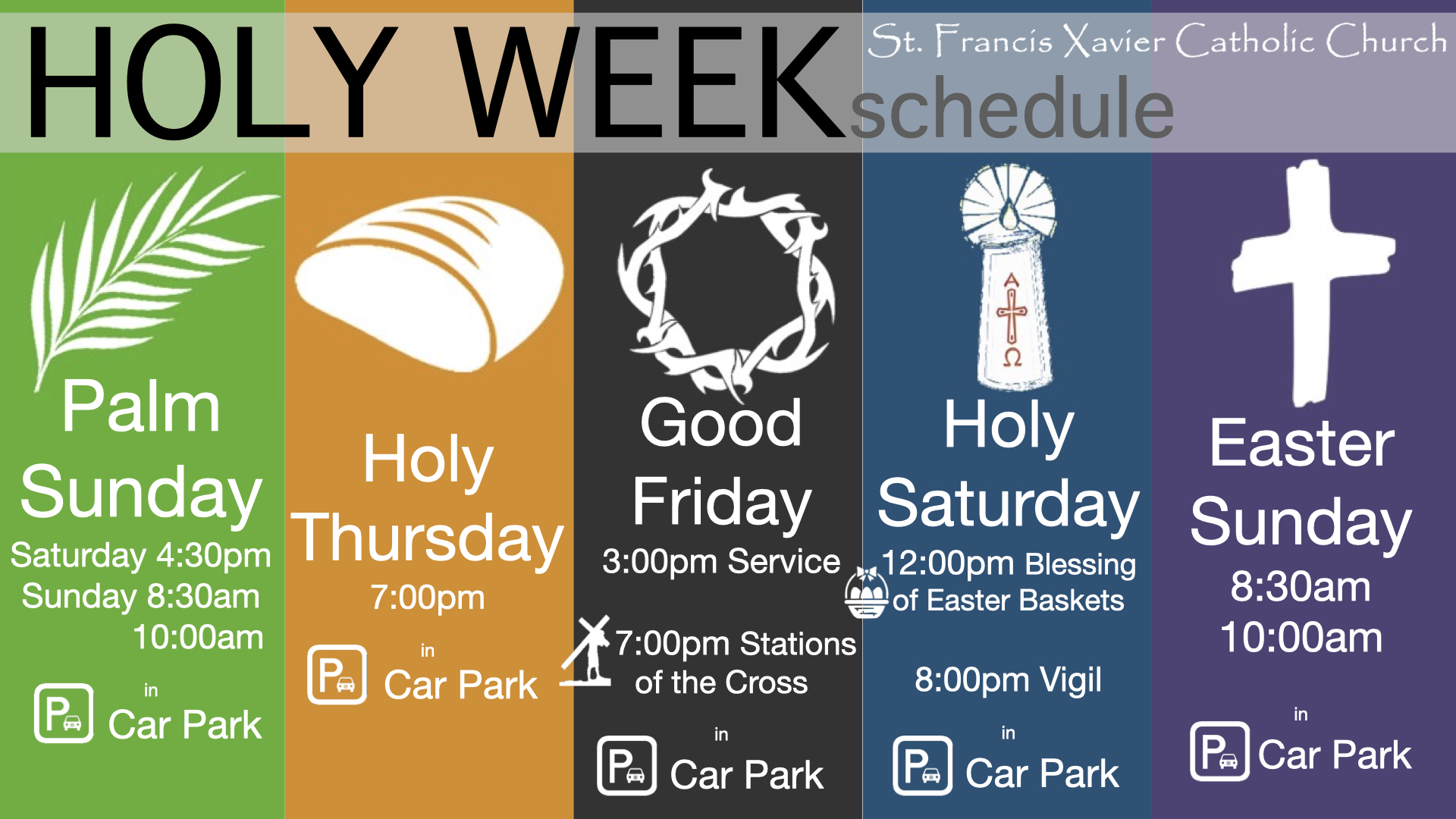
Leave a Reply